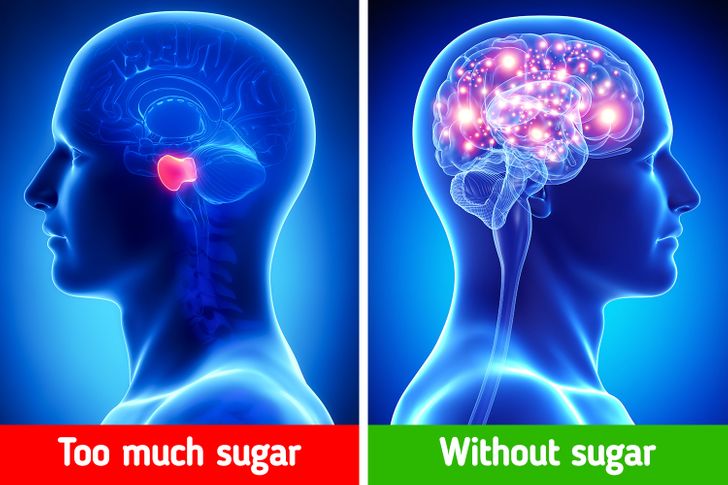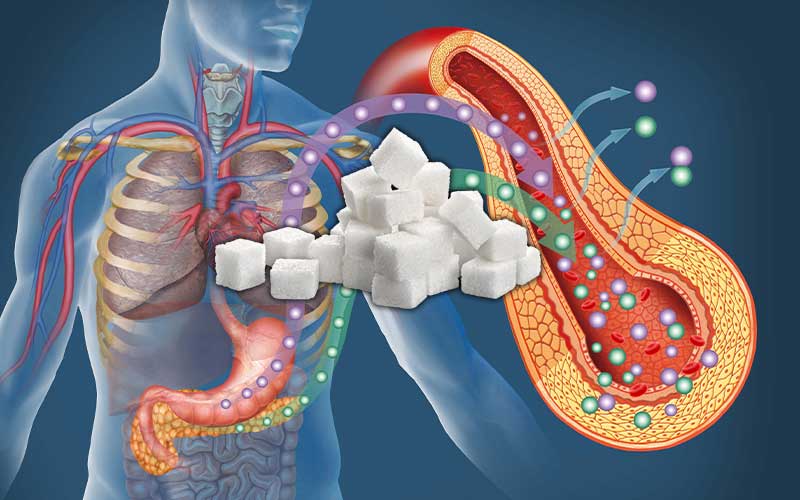Chrornic diseases aoccount for 86% of all healthcare costs ($ 3.2 trillion in 2015 and growing)
Stress & Anxiety
Detoxification/Cleanse
Gut Issues
Hormone Balance
Thyroid Disease
Weight Loss.

Do you think this may have an impact on our health???
There is a vast diversity of bacteria species in our gut, maintaining this ecosystem balance is the key to our Health!
A DENSE NUTRICIOUS DIET IS REQUIRES TO KEEP ALL MICROBES IN CHECK TO PERFORM THEIR DUTY.
The Gut is often called our “second brain” because it houses its own Enteric Nervous system and informs the brain through the Vagus nerve about the status of our world. The Vagus nerve connects the brainstem to the body, It allows the brain to monitor and receive information about several of the body’s different functions. This connection is vital for good health.
Living deep down in our intestines there is a complex ecosystem of microorganism composed of bacteria, viruses, and fungi, all collectively constitute our precious gut micro biome.
The thyroid is a butterfly-shaped gland located in your throat, right below your Adam’s apple. The thyroid gland makes, stores, and releases thyroid hormones into your blood. The thyroid is a very big deal as it is in charge of everything that goes on in the body from basic aspects of body function to all the major systems. Every cell in our body has thyroid hormone receptors, and so every system in your body can be affected when your thyroid is off.
Thyroid imbalances come in two major forms: hypothyroidism and hyperthyroidism. Hypothyroidism is when there is too little thyroid hormone in your blood. This makes your body and its functions sluggish. Hyperthyroidism, on the other hand, is when you have too much thyroid hormone in your blood and everything starts racing, Grave’s disease.
Nearly 75% of Americans are overweight, and a significant factor is excessive sugar intake. The Standard American Diet (SAD) is loaded with sugar—think about it, cereals are often 60% sugar by weight, not to mention the liquid sugars in sodas and juices. When we consume sugar or carbohydrates, our blood sugar spikes, leading to a biological process called glycation. This process causes inflammation, a natural response in the body meant to address issues like illness, stress, or injury. However, when inflammation becomes chronic, it keeps the body in a state of constant alert, wearing down the immune system, damaging organs, sapping energy, and paving the way for more diseases.
ADVANCED GLYCATION ENDPRODUCTS Sugar + Fats + Proteins = AGE’S sticky compounds that clogs blood vessels of eyes, arteries, heart, kidney and brain. Like donuts, chard meats, ice cream, etc. These AGE’S also react with other compounds in the body like breaking collagen, so if you consume high amounts of sugar in your diet, most likely you notice your skin complexion with early signs of aging wrinkles, and not only that, what about the collagen needed for your joints??? these AGE’S are not good, they cause inflammation triggering pain and swollen joints. Your digestion is affected by too much sugar as well. As you know we have a perfectly balanced ecosystem in our guts called micro biome , these microbes are essential for a strong immune system and hormonal balance. Too much sugar feeds the bad bacteria, breaking off this delicate gut balance, causing all kinds of trouble like bloating, Candida overgrowth, parasites, SIBO and IBS. When you stop eating refined sugar you literally starve these bad bacteria. Your brain is affected big time by this inflammation caused by too much refined sugars. Have you ever been on those mid-afternoon slumps where you can’t seem to think straight and suddenly reach out for that pick-me-up latte and a muffin??? what If i tell you that stimulates dopamine receptors in the brain pretty similar to the effect of cocaine. and right after that surge of energy comes the crash, and it becomes a vicious cycle. There is tons of research that this inflammation in the brain impairs the hippocampus functions which is in charge of memory and learning. When you stop eating too much sugar your brain makes better neural connections, the brain fog disappears and you can think and focus like never before! Another huge issue with too much sugar is the risk of cardiovascular disease. Contrary to what traditional medicine believes that high cholesterol causes high blood pressure and heart disease, now research shows that most of the endothelial tissue damage comes truly from inflammation. When we have insulin spike from consuming too much sugar, the cells on our artery walls actually start hardening up, making them less flexible, when they become more stiff and they become more resistant against the blood which increase high blood pressure, which make more easily to have a blood clot or arteriosclerosis.
Sugar affects our hormones in many ways, for example ladies if you have a terrible time during your periods, you can attribute that to sugar, the inflammation that it causes acne, terrible PMS, headaches, lack of sleep, etc. Too much sugar causes spikes of insulin surges which disturb important sex hormones productions like testosterone, yes sugar increase your testosterone but later on is converted into estrogen, and too much estrogen causes is linked to female cancers and in man testosterone turns into a powerful androgen DHT that cause baldness in man and women. By the way, weight lifting is a great way to keep your testosterone levels healthy, which supports strength, muscle mass, clear thinking, sex drive, bone density, etc. And of course there are foods that help to avoid that conversion… Not to mention in middle age women or during pre and menopause the balance of estrogen-progesterone is thrown out of whack courtesy of another very important hormone called cortisol. This is important for mood balance, quality sleep and fertility.
Your brain is significantly impacted by inflammation caused by too much refined sugar. Have you ever experienced mid-afternoon slumps where you can’t think straight and reach for a latte and a muffin? This stimulates dopamine receptors in the brain similarly to cocaine. After the energy surge, you crash, creating a vicious cycle. Research shows that this brain inflammation impairs the hippocampus, which is responsible for memory and learning. Reducing sugar intake helps your brain form better neural connections, eliminates brain fog, and enhances focus and clarity.
Excessive sugar intake also increases the risk of cardiovascular disease. Contrary to traditional medical beliefs that high cholesterol causes high blood pressure and heart disease, current research shows that most endothelial tissue damage results from inflammation. When insulin spikes from consuming too much sugar, the cells on our artery walls start hardening, making them less flexible. This stiffness increases blood pressure and the risk of blood clots or arteriosclerosis.
When sugar combines with fats and proteins in the body, it forms sticky compounds known as Advanced Glycation Endproducts (AGEs). These harmful substances clog blood vessels in the eyes, arteries, heart, kidneys, and brain. Foods like donuts, charred meats, and ice cream are prime examples that lead to the formation of AGEs. AGEs also break down collagen, which is essential for youthful skin and healthy joints. Consuming high amounts of sugar can lead to early signs of aging, such as wrinkles, and can also cause painful, swollen joints due to increased inflammation.
Excessive sugar intake also disrupts digestion. Our gut contains a balanced ecosystem of microbes, known as the microbiome, which is crucial for a strong immune system and hormonal balance. Too much sugar feeds harmful bacteria, disrupting this delicate balance and leading to issues like bloating, Candida overgrowth, parasites, Small Intestinal Bacterial Overgrowth (SIBO), and Irritable Bowel Syndrome (IBS). By cutting out refined sugar, you essentially starve these bad bacteria, promoting a healthier gut.


Your brain is significantly affected by the inflammation caused by too much sugar. Ever experience those mid-afternoon slumps where you can’t think straight and reach for a sugary snack? That’s because sugar stimulates dopamine receptors in the brain, similar to the effects of addictive substances like cocaine. This leads to a temporary surge of energy followed by a crash, creating a vicious cycle. Research shows that inflammation in the brain impairs the hippocampus, the region responsible for memory and learning. Reducing sugar intake improves neural connections, eliminates brain fog, and enhances focus.
One of the biggest risks associated with high sugar intake is cardiovascular disease. Contrary to traditional beliefs that high cholesterol causes high blood pressure and heart disease, recent research shows that inflammation is the real culprit. Insulin spikes from consuming too much sugar cause the cells in our artery walls to harden, making them less flexible and more resistant to blood flow. This stiffening increases blood pressure and the risk of blood clots and arteriosclerosis.
By reducing sugar intake and focusing on a balanced, nutrient-dense diet, you can significantly lower your risk of these serious health issues, boost your energy levels, and improve your overall well-being.

Never disregard professional medical advice or delay in seeking it because of something you have read on this website. Health-related information changes frequently and, therefore, the Content on this website may be outdated, incomplete or incorrect. We do not assume any liability for the information contained or referenced within this website and make no warranties, nor express or implied representations whatsoever regarding the accuracy, completeness, timeliness, or usefulness of any information contained or referenced in this website.
Results vary from patient to patient. No prescriptions or treatments will be given unless a clinical need exists based on an examination by the physician. Any review or other material that could be regarded as a testimonial or endorsement does not constitute a guarantee, warranty, or prediction regarding the outcome of any consultation. The testimonials on this website represent the anecdotal experience of individual consumers.